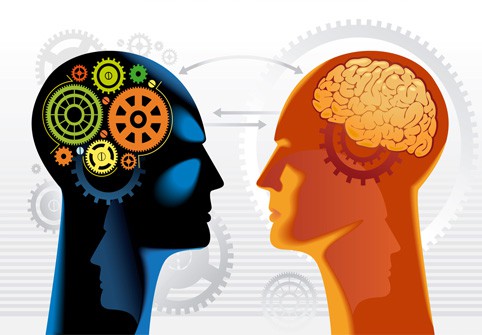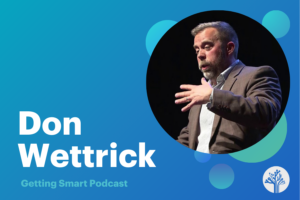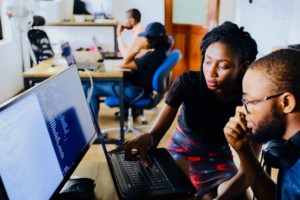Helping Teachers Move from Digital Learners to Digital Leaders

By: Dr. Idit Harel Caperton
Great tech tools can change the way we live and work. Planes remove the geographical and time barriers for global collaboration. Advances in laser technology provide doctors with new ways to diagnose and heal patients. Digital tools change the way teachers can engage learners.
However, the effective use of these tools depends on the expertise of those who use them. Planes and airlines would be useless without the pilots who mastered the ability to fly and without passengers who enjoy using them. Lasers can only be used effectually by trained medical professionals and with patients embracing the process and the results. In the same way that these masters (pilots and doctors) needed to be trained to use these exciting new tools with their customers in the best contexts (airlines and operating rooms), teachers must also be provided with the excellent training and support that is relevant to their students and their schools. The inclusion of digital tools and resources will only be as effective as the teachers who embrace them. This is true for young as well as more experienced teachers, from all content backgrounds and grade-level expertise, and with some or no prior technology knowledge.
We must recognize that in this context, teachers are themselves digital learners, and in order for digital learning to be successful, teachers must be taught and supported in their process of becoming digitally literate. At World Wide Workshop, we recognize that teachers must first be supported as digital learners. In our flagship program, Globaloria, the first and largest social learning network, where students develop digital literacies, STEM knowledge and global citizenship skills through game design, we developed a phased methodology that trains teachers as Globaloria learners first, and then trains them as Globaloria leaders. As one teacher told me, “My teaching with computers and all these digital tools became richer and deeper because the Globaloria team prepared me and supported me and my fellow teachers in how to first take our own baby-steps of digital learning, when we started. We learned just like our students.”
We’ve run into this challenge before in the education field—with the integration of computers, interactive white boards and other technologies into classrooms across the country. Massive investments in tools—without the necessary training for the educators expected to use them—left many questioning the validity of their impact on learning. As we look to the future of digital learning, we must be sure to avoid the pitfalls of our technology past.
As we celebrate the first, national Digital Learning Day today, Wednesday, February 1, 2012, let’s recognize the masters of this great profession and provide educators—young and experienced, tech-savvy and tech-novices—with all the supports they need to be successful as learners first, and leaders second.
Our teachers are learners too. Let’s commit to giving them the time to collaborate and learn from one another, the ongoing support from school and district leadership, quality professional development opportunities, and the tools to innovate so that they fully leverage the transformative power of digital learning.






0 Comments
Leave a Comment
Your email address will not be published. All fields are required.